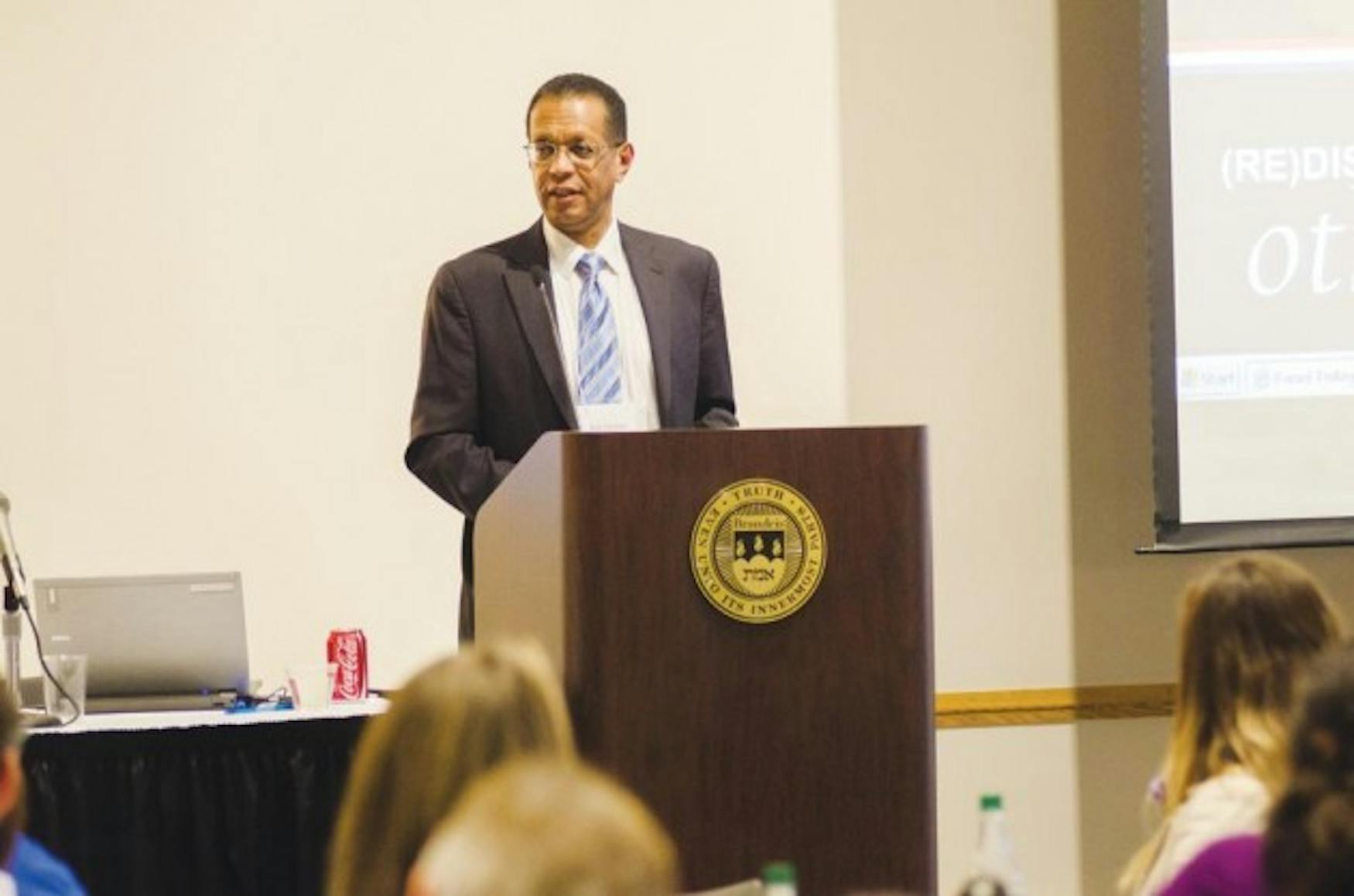Speakers discuss modern poverty
Corrections appended.
University students, faculty, staff and community organizations gathered in the Hassenfeld Conference Center last Thursday to mark the 50th anniversary of Michael Harrington's The Other America: Poverty in the United States, a book centered on the "invisible poor"-a group that mainstream America ignored in the 1960s. Harrington's narrative motivated President Lyndon Johnson's "War on Poverty," legislation that included Medicaid, Medicare and Social Security and contributed to a decline in the nation's 22.4 percent poverty rate in 1959.
The Louis D. Brandeis Legacy Fund for Social Justice and the Master of Public Policy Poverty Alleviation Concentration at the Heller School for Social Policy and Management cosponsored the event, "(Re)discovering Harrington's Other America: A Symposium on Poverty Since the Great Society." The discussion featured two keynote speakers, Prof. Robert Kuttner (Heller), founder and coeditor of The American Prospect, and Bob Herbert, senior adviser for the Institute on Assets and Social Policy at Heller and former New York Times columnist, as well as graduate student and professor panelists. Each spoke at length about the distribution of wealth in the United States, social mobility and social movements.
"Poverty has now mounted a ferocious comeback in the United States, taking a fierce toll on tens of millions of people, and many of them are very young," said Herbert. He continued, "today, a half-century after The Other America was first published, how can we allow this scandal to continue to fester?"
Herbert compared the unequal distribution of wealth to "a medieval scene of nobles and serfs," attacking the rich-among them bankers, CEOs and hedge fund managers-for neglecting the poor.
"We have, on the one hand, the mayor [of New York City] with $25 billion, a dozen homes, his one private airplane, a mayor so rich he disdains living in the mansion provided by the taxpayers for the city's top elected official, but on the other hand, we have the mayor's constituents sleeping in the rain on cardboard boxes in the street," said Herbert.
But the dialogue did not only concentrate on the current status of the American economy. The speakers compelled the audience to get involved and change the conversation from one about the middle class to one about wealth inequalities and the poor.
"When public officials talk about economic issues, they're almost always focused on the middle class. If there's any discussion of poverty at all, it's usually how best to cut the already meager programs that offer the poor some level of assistance," said Herbert.
That current level of social assistance is not enough, said Prof. Thomas Shapiro (Heller). According to Shapiro, the social welfare system in the United States was not established to end poverty but to "stave off the broadest forms of the market economy and its devastation. We really don't want people to be homeless. We don't want people to go hungry." But he argued that society places barriers on those receiving support. "There's a dollar amount they cannot have in any form of financial assets, and if they go above that number, they're no longer eligible" for assistance, which, Shapiro said, makes it hard for people to leave poverty.
Dr. Mariko Chang, adjunct lecturer at Heller, agreed that though social mobility occurs, few people rise from the bottom to the top in terms of wealth. Instead, most movement takes place in the middle class, where there are gradual shifts in income.
To overcome the disparity of wealth, Kuttner proposed creating a coalition of the vulnerable middle class and the poor to spread awareness of economic conditions in the United States.
All of the speakers seemed to agree on that point: To end poverty, organization and social movements are necessary.
"We have to wake the population up, shake the people out of their denial. ... The antibiotic that will bring us back to full health is awareness," Herbert said.
In his plea to the audience, Herbert cited a history of bad public policy decisions that hurt the poor and middle class at the expense of the rich: "We're in a mess because we allowed the politicians we elected to remake the rule in favor of those who were already rich and powerful."
But with nearly 50 million poor Americans in 2012 and another 50 million considered to be "near poor," Herbert said there is no time to waste. "We've been redistributing from the bottom-up for the longest time ... but we have to stop that foolishness."
Whether or not they agreed with the speakers, most spectators were pleased with the dialogue. "I'm not sure if it changed my opinions on anything, but I think it's an important discussion that's not happening in a lot of places," said Ellen Marya MPP '12.
"It was really well-organized, really good speakers, lot of great ideas about how people can engage to make a real change," said Raquel Scarpari, who is a graduate student in Heller's public policy program.
Ellen Marya is a recent graduate of the Heller School for Social Policy and Management; she is not currently a student there.



Please note All comments are eligible for publication in The Justice.